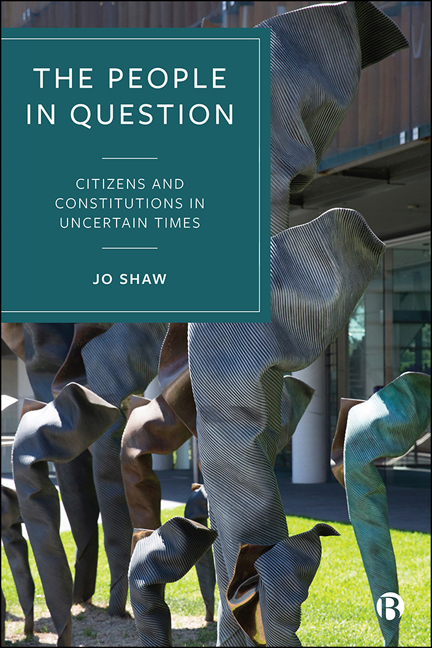4 - The Acquisition and Loss of Citizenship in a Constitutional Context
Published online by Cambridge University Press: 18 March 2021
Summary
Introduction
In this chapter, we go under the bonnet of constitutional citizenship by examining how constitutions shape or affect the processes of acquisition or loss of citizenship. The conceptual connection between questions of acquisition and loss and those core issues of constitutional and citizenship theory, which structured the discussion in Chapter 3, is very hard to pin down. Patrick Weil issued a warning about this, arguing that there is often a ‘complete opposition between the mechanism used to attribute nationality to a person and the one used to constitute the nation’ (2008, 185). This suggests taking a precautionary approach to any attempts to read those ideas and concepts across into this chapter. It also reflects the observation that citizenship should be principally seen as ‘an artifact [sic], a creature of government’ (Orgad 2018, 792).
The chapter proceeds thematically. First, we address some examples where constitutional provisions have had an impact on the main modes of acquisition of citizenship (ius soli and ius sanguinis birthright citizenship, along with naturalization), before looking at the topic of dual citizenship. We then look at constitutional provisions on loss of citizenship, before shifting the focus onto a broader discussion of how constitutional principles and norms can impact on acquisition and loss even in the absence of constitutional provisions directly regulating citizenship. By this point in the chapter we can finally begin to see some links between the materials discussed here and the presentation of foundational constitutional principles, including equality and dignity, in Chapter 3. The chapter concludes with a short comment bringing together material focused on campaigns to enhance aspects of the ‘right to a nationality’ via constitutional amendments (and thus to eliminate statelessness), drawing on issues discussed in previous sections. This concluding section also highlights, by way of comparison, another field of campaigning, in the area of gender equality. In some cases, the two sets of campaigns merge together, as in the case of efforts to ensure that mothers and fathers are in the same position to pass their citizenship to their children (whether born within or outside the national territory).
- Type
- Chapter
- Information
- The People in QuestionCitizens and Constitutions in Uncertain Times, pp. 99 - 148Publisher: Bristol University PressPrint publication year: 2020



